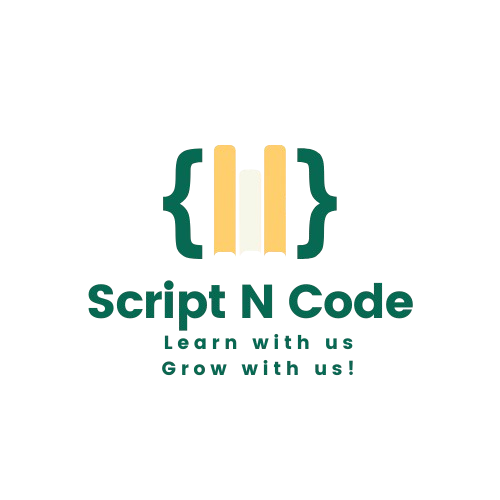Learn Java
Learn Java programming online with our practical course. Solve problems to test your knowledge of the basic syntax and object oriented programming.
(38598 reviews)
33 lessons
Beginner level
150.4k
Earn certificate after completing all the lessons.
This path is a part of Java with Beginner DSA roadmap
Learn Java (Beginner)
Beginner DSA in Java
Mastering Java: A Step-by-Step Learning Path
1. Getting Started: Java Basics & Syntax
Lay the foundation with Java's fundamental concepts, syntax, and printing statements.
🔘 Lesson 1: Introduction to Printing in Java
🔘 Lesson 2: Exploring the Print Statement
🔘 Lesson 3: Understanding Java Syntax
📝 Skill Test: Java Output & Printing
2. Storing Information: Variables & Data Types
Learn how to store, manage, and manipulate data using Java variables and types.
🔘 Lesson 1: Introduction to Variables and Data Types
🔒 Lesson 2: Variables Quiz 🏷️ Pro
🔒 Lesson 3: Exploring More Data Types 🏷️ Pro
📝 Skill Test: Variables & Data Types
3. Performing Operations: Java Operators
Master arithmetic, logical, and relational operations to handle data efficiently.
🔘 Lesson 1: Arithmetic, Relational & Logical Operators
🔒 Lesson 2: Operator Precedence, Type Casting & Conversion 🏷️ Pro
📝 Skill Test: Operators
4. Working with Text: Java Strings
Understand how Java handles text and learn powerful string manipulation techniques.
🔘 Lesson – Introduction to Strings
🔒 Lesson – Quiz on Strings 🏷️ Pro
🔒 Lesson – Modifying Strings 🏷️ Pro
📝 Skill-Test – Module test: Strings
5. Interacting with Users: Taking Input in Java
Learn how to accept and process user input in Java programs.
📖 Lesson 1: Handling User Input
🔒 Lesson 2: Practice Problems 🏆 Pro
📝 Skill Test: User Input
6. Decision-Making: Conditional Statements
Use if, else, and switch to control program flow based on conditions.
📖 Lesson 1: Introduction to Conditional Statements
🔒 Lesson 2: Conditionals Quiz 🏆 Pro
🔒 Lesson 3: Comparing Elements in
ifStatements 🏆 Pro🔒 Lesson 4: Combining Conditions (
&&,||) 🏆 Pro🔒 Lesson 5: The
switchStatement 🏆 Pro📝 Skill Test: Conditional Statements
7. Fixing Errors: Debugging Java Code
Identify and fix common programming errors with debugging techniques.
📖 Lesson 1: Understanding Common Errors & Debugging Methods
🔒 Lesson 2: Debugging Practice 🏆 Pro
📝 Skill Test: Debugging
8. Loops: Repeating Tasks Efficiently
Master different types of loops in Java to automate repetitive tasks and control flow in your programs.
📖 Lesson — While loops
📖 Lesson — For loops 🔒🏆 Pro
📖 Lesson — Quiz on Loops 🔒🏆 Pro
📖 Lesson — Break, Continue, For each 🔒🏆 Pro
📖 Lesson — Nested loops 🔒🏆 Pro
📝 Skill-Test — Module test: Loops
9. Arrays: Storing Data in Collections
Learn how to work with arrays to store, manipulate, and manage multiple data items efficiently.
📖 Lesson — Introduction to Arrays
📖 Lesson — Quiz on Arrays 🔒🏆 Pro
📖 Lesson — Basic Array Manipulations
📝 Skill-Test — Module test: Arrays
10. Methods in Java: Code Reusability
Unlock the power of functions (methods) in Java to write clean, reusable code and solve problems more effectively.
📖 Lesson — Methods in Java
📖 Lesson — Use Methods in Problems 🔒🏆 Pro
📝 Skill-Test — Module test: Methods in Java
11. Solving Algorithmic Problems
Sharpen your problem-solving skills with a focus on test cases, custom inputs, and outputs to solve real-world algorithmic problems.
📖 Lesson — What are Test Cases?
📖 Lesson — What are Custom Inputs?
📖 Lesson — Review Problems
Coming up
Frequently Asked Questions (Faqs)
Is Java tough to learn?
No, Java is beginner-friendly, especially if you understand basic logic and syntax. The challenge comes in OOP concepts, memory management, and advanced frameworks.
How many days will it take to learn Java?
- Basics (Syntax, Loops, Arrays, Functions): 15-20 days
- Intermediate (OOP, Exception Handling, File Handling): 1-2 months
- Advanced (DSA, Multi-threading, Frameworks like Spring): 4-6 months
Do I need to learn C or C++ before Java?
No, Java can be learned directly. But knowing C/C++ helps in understanding memory management and logic building.
Is Java enough to get a job?
- For entry-level jobs: Yes, but knowing SQL, DSA, and basic web development (Spring Boot for backend) boosts chances.
- For Android development: Java is useful, but Kotlin is preferred.
